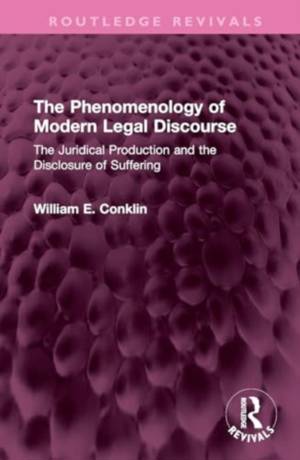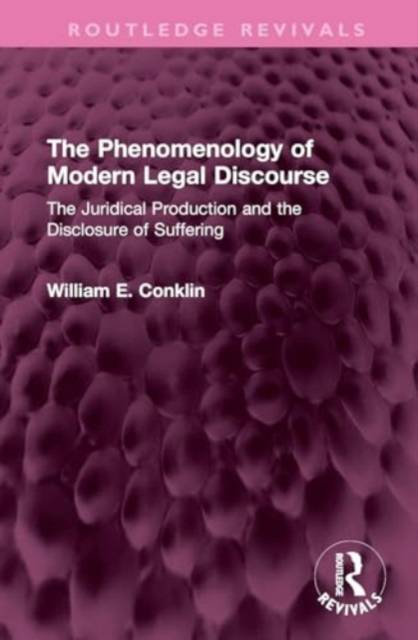
- Retrait gratuit dans votre magasin Club
- 7.000.000 titres dans notre catalogue
- Payer en toute sécurité
- Toujours un magasin près de chez vous
- Retrait gratuit dans votre magasin Club
- 7.000.000 titres dans notre catalogue
- Payer en toute sécurité
- Toujours un magasin près de chez vous
The Phenomenology of Modern Legal Discourse
The Juridical Production and the Disclosure of Suffering
William E ConklinDescription
Originally published in 1998, The Phenomenology of Modern Legal Discourse recovers the suffering which is concealed as lawyers, judges and other legal officials resignify a harm through the special vocabulary and grammar which constitutes legal language. At the moment of re-signification, an untranslatable gap erupts between the knowers' special language and the embodied meanings of the non-knower. The Phenomenology claims that the gap can be unconcealed if the knowers of the special language reconsider their assumptions about legal meaning, the body and desire.
With a broad grasp of diverse problematics from the legal procedures, legal discourses and legal theory of three jurisdictions to exemplify his claims, the author interweaves arguments which draw from Edmund Husserl's and Maurice Merleau Ponty's insights about meaning. The author's effort demonstrates how one may unconceal lived laws through a re-reading of the role of the experiential body in legal signification. The author's effort to retrieve the embodiment of legal meaning de-stabilizes deep assumptions of contemporary lawyers and legal theorists.
Spécifications
Parties prenantes
- Auteur(s) :
- Editeur:
Contenu
- Nombre de pages :
- 298
- Langue:
- Anglais
- Collection :
Caractéristiques
- EAN:
- 9781138360792
- Date de parution :
- 01-05-24
- Format:
- Livre relié
- Format numérique:
- Genaaid
- Dimensions :
- 156 mm x 233 mm
- Poids :
- 571 g







